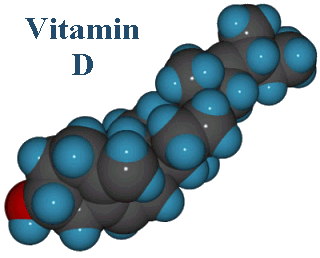 Researchers from the Medical University of South Carolina in Charleston have published a detailed review.
Researchers from the Medical University of South Carolina in Charleston have published a detailed review.
Their interest relates to the needs of vitamin D in the breastfeeding mother and her infant and child, but they also present a detailed and well-referenced review.
Some historical perspective
Mid-1600s
- Rickets is identified as a major health problem for young children as people begin to leave rural farming communities for urban areas.
- The exodus brought about lifestyle and environmental changes that limited sunlight exposure.
- Rickets is characterized by deformities of the skeleton, coupled with generalized muscle weakness.
Early 19th century
- Rickets was epidemic in northern Europe and in industrialized northern regions of the United States.
1822
- Dr. Andrew Sniadecki reported that lack of sun exposure could be the cause of rickets.
Mid-1800s
- Fish liver oils discovered to heal rickets.
1920s
- Vitamin D identified, and the link was made to rickets.
Today
- Vitamin D effects organ systems throughout the body down to the cellular level.
- What was once thought to be a simple hormone affecting only bone and calcium metabolism, is recognized to be much more.
- It’s a complex hormone that regulates calcium and the integrity of the immune system.
- Vitamin D deficiency is linked to inflammatory and certain diseases such as multiple sclerosis, rheumatoid arthritis, tuberculosis, diabetes, and various cancers, to name a few.
The bottom line?
The authors conclude, “As new evidence points to serious consequences of chronic vitamin D deprivation,… we must establish normative guidelines for safe and effective vitamin D supplementation during lactation in both the lactating woman and her infant that address modern-day lifestyles. It is clear that at least in part, vitamin D does make the world go ‘round.” The latest vitamin D dosing recommendations from the American Academy of Dermatology (AAD) are summarized here.
12/21/08 21:31 JR